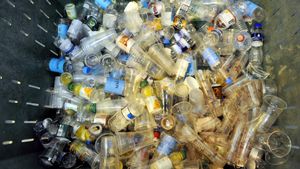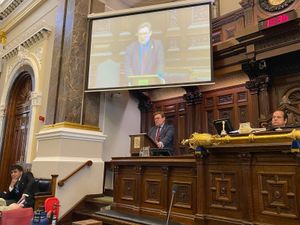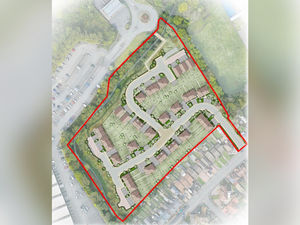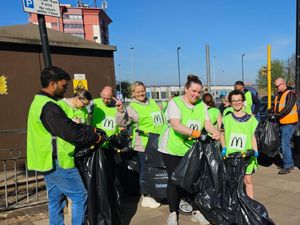Recycling rates fall in Black Country and Staffordshire
Recycling rates in the Black Country and Staffordshire fell during the coronavirus pandemic.

Figures from the Government showed that there were falls in all but one local authority within the region.
Walsall saw the largest drop in recycling, with a 12 per cent reduction over a 12 month period.
Between April and June last year, Walsall Borough Council collected 29,758 tonnes of waste.
Of the rubbish collected over the period, 34 per cent was sent for recycling – down from 46 per cent during the same period in 2019.
Councillor Oliver Butler, portfolio holder for clean and green at Walsall Council, said: "The early months of the pandemic resulted in considerable variation in the amount of household and non-household waste collected and disposed of by Walsall Council compared to a normal year for a number reasons.
"Walsall Council maintains its commitment to promote recycling where possible and ensuring that residents are given every opportunity where possible to recycle waste."
Across the same period, Wolverhampton and Dudley had the second highest reductions, with four per cent each.
Dudley sent 40 per cent of rubbish for recycling in 2020, down from 44 per cent in 2019.
Wolverhampton sent 35 per cent of rubbish for recycling last year, down from 39 per cent the year before.
Councillor Steve Evans, cabinet member for environment at Wolverhampton Council, said: "We experienced an increase in contamination of recycling material from kerbside collections during the lockdown period which is understandable as people were asked to stay at home and follow government guidance.
"These recycling rates reflects the closure of the household waste and recycling centres and the reduction of their capacity upon reopening due to social distancing as a direct result of the Covid-19 pandemic and restrictions set by government.
"City of Wolverhampton Council is committed to supporting its residents to recycle, this is shown in its communications to residents whether that be online, on the ground though council teams and by the recycling facilities the council uses to recycle as much waste as possible."
Sandwell also recorded a fall, with a three per cent reduction, dropping from 37 per cent in 2019 to 34 per cent in 2020.
It means all Black Country boroughs had reductions.
A spokesman for Sandwell Council said: "We are working with our environmental partner Serco to fully restore all our services and return recycling rates to pre-pandemic levels."
Cannock Chase was the only council to record an increase, with 47 per cent of rubbish sent for recycling in 2020, up by two per cent, from 45 per cent, in 2019.
Stafford and South Staffordshire councils each recorded a three per cent reduction; falling from 55 per cent to 52 per cent and 56 per cent to 55 per cent respectively.
Will Conaghan, spokesman for Stafford Borough council, said: "We continued our household waste collection service during the pandemic as normal where some authorities were not able to."
The figures were provided by the Department for Environment, Food and Rural Affairs [DEFRA].
The stats also showed that more rubbish was collected in Dudley during the time frame, rising by three per cent.
In response to the story, councillor Karen Shakespeare, cabinet member for the public realm in Dudley, said: "The DEFRA figures reflect recycling as a percentage of overall waste, so while recycling rates look like they may have dropped, in actual fact we saw a significant increase in recycling when compared against recycling rates for the previous year."
Other local authorities collected more rubbish over the period, including Cannock Chase, which recorded a 16 per cent increase.
Councillor Justin Johnson, portfolio leader for environment and climate change at Cannock Chase District Council, said: "I know that with a large number of people staying at home due to lockdown measures, we saw an increase in the amount of waste collected both for residual waste and recycling."





